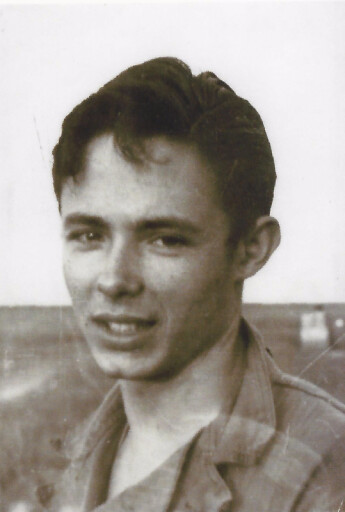

James
James H. Chenoweth
d. September 1, 2015
Hancock, NH James H. Chenoweth died (September 1, 2015). A longtime resident of Hancock, NH, he and his wife had lived in their retirement home since 1979. He is survived by those whose love and support had thoroughly enriched his life; his wife Denise, son Geoffrey and daughter Pamela. Born of missionary parents on St Valentine's Day, 9122, in a Chinese Village on the edge of Tibet, his family was forced to leave when the Japanese invaded China. They settled down in Rutherford, NJ, where he and two brothers continued growing up. The Selective Service Act drafted civilians into a year of military service. Instead, he enlisted in a combat engineer regiment, leaning to build bridges, purifying water and use explosives. Pearl Harbor extended his year. Shifted from base to base, including ten months studying at Georgia tech, Jim finally had enough. He volunteered to become a paratrooper. "Jump trained", his assignment to regimental intelligence (S-2) in the 82nd Airborne came too late for D-Day but in time for the invasion of the Netherlands, Battle of the Bulge, Elbe River crossing and occupation of Berlin. After fifty moths of military service (nine of them in combat) the Army declared Jim surplus and sent him home with an honorable discharge and 16 military citations (two from foreign governments but no Purple Heart). He was 23 years old. James met, and later married, Denise Glassett, a love match that never burned out. They agreed early about money: he would earn it but she had to spend it. Uncertain about the future, they discussed boom town opportunities in post-war Alaska and decided to try living there for one year; they stayed for eleven. Alone in harsh November weather, he drove the 5,000 miles to Anchorage, arriving with 28 cents in his pocket. In territorial Alaska, Jim found the role that fitted him. He became a frontier lawman. The Anchorage Police Department hire him first. Then in 1954 the Department of justice offered him the job of Chief Deputy U.S. Marshal. Alaskan frontier marshals were territorial equivalent of State Police. When statehood changed his job, he contracted other government agencies. (Jim was the last of the legendary frontier marshals.) The Treasury Department accepted him and moved him to the New York area in 1962. New York was familiar territory. Jim had worked in New York bank (the Security Chief taught him how o shoot). He had been a commuting student at Columbia College. New York was also a happy hunting ground for criminal investigators. A few good cases, and a few lucky breaks. In 1965, he was transferred to Washington. He moved through a variety of assignments, gradually arriving at the Executive level. He was Acting Assistant Director when he retired. Denise was not quite eligible for retirement. While waiting, Jim worked as an investigator for the Congressional Houses Select Committee on Assassinations. Cut loose at last, they headed north to bold their retirement home in Hancock. James played chess instead of poker. AN awkward dancer, he was usually forgiven. He preferred endurance rather than speed. When fencing, he chose foils but once he choreographed a cutlass duel for a stage play. He ran white water rapids in an open deck canoe. In Alaska he produced a weekly TV program about police work; it won a Public Service Award. The first Alaska Crime Conference in 1961 was his brain child. He was a competent photographer. A CBS TV special about Alaska statehood included considerable footage from his home movies. He liked puns, licorice candy and honky-tonk piano music. He didn't like rhubarb, golf, and political phone calls. Jim volunteered for many activities in Hancock but refused to participate in any parade. He bushwhacked hiking trails for the Harris Center, managed a two year study of the water quality in local lakes and ponds. He checked town boundary markers. Jim wrote. His two books were published. He wrote essays, short mystery stories, research papers and letters to the editor. Jim also wrote this obituary. In Hancock's Hillside Cemetery, Jim will sleep in the earth under the gravestone epitaph he had wanted- "a tired fox". In lieu of flowers, please make contributions to: Harris Center for Conservation Education, Hancock, NH 03449 Harriscenter.org
To order memorial trees or send flowers to the family in memory of James H. Chenoweth, please visit our flower store.



